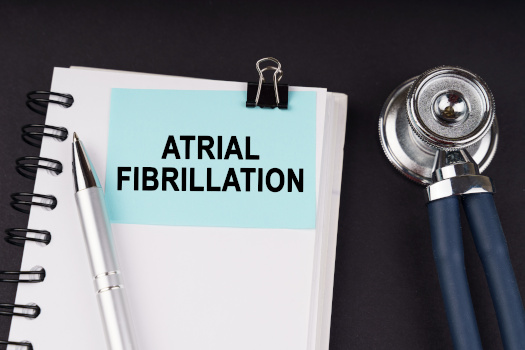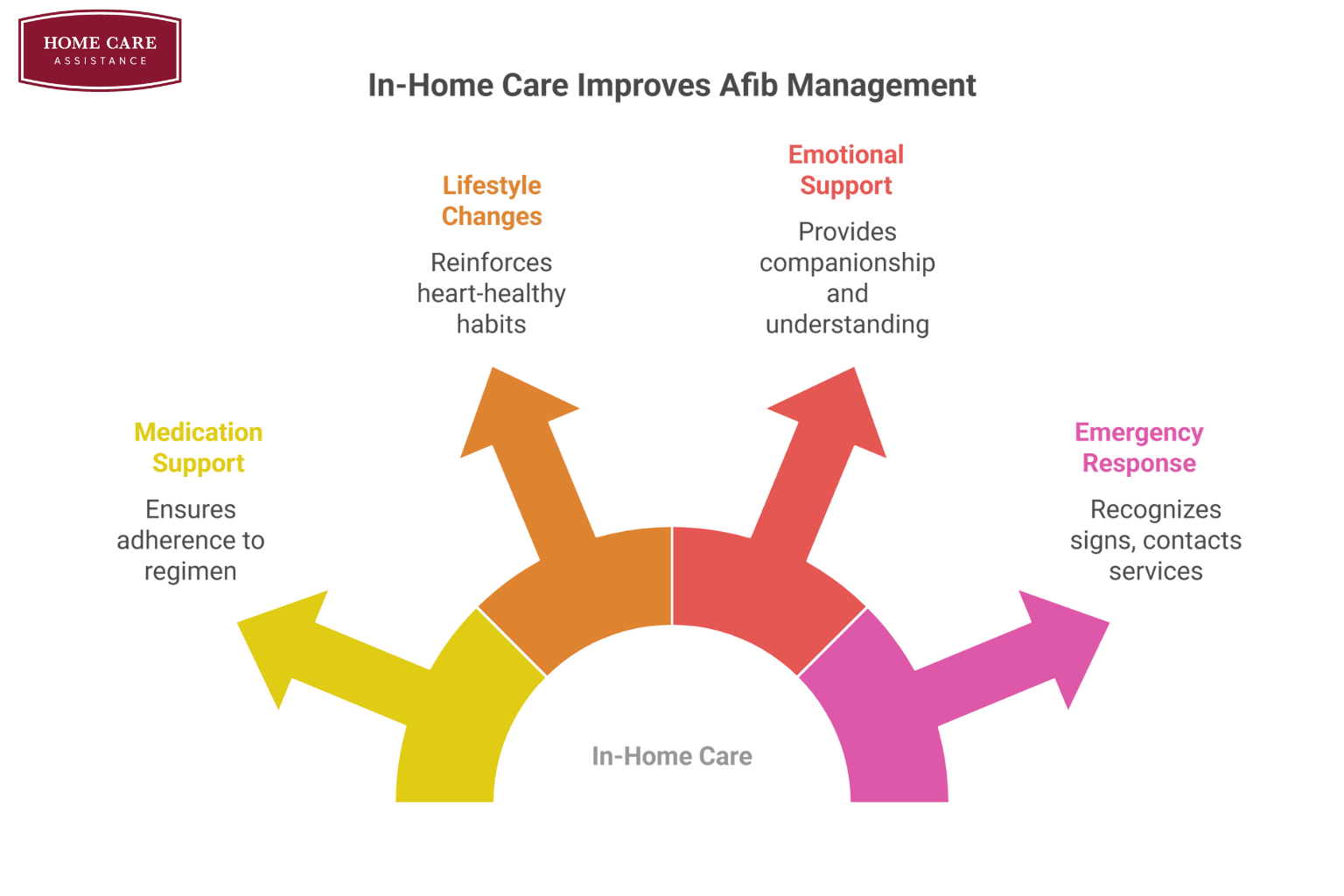
Table of Content
Atrial fibrillation (Afib) is one of the most common heart rhythm disorders, affecting millions of people worldwide. Left untreated, this condition can lead to serious complications like stroke or heart failure. Understanding Afib and knowing how home care plays a key role in managing it can help your senior loved one lead a healthier, safer life.
What Is Afib?
Atrial fibrillation is a type of irregular heartbeat, or arrhythmia, that occurs when the upper chambers of the heart (the atria) quiver or beat chaotically. This disrupts the normal blood flow and causes an inefficient pumping of blood into the lower chambers (ventricles). Symptoms of Afib can vary widely, ranging from none at all to palpitations, fatigue, dizziness, and shortness of breath.
While anyone can develop Afib, certain factors increase the likelihood, including age, high blood pressure, underlying heart conditions, obesity, or even lifestyle habits such as smoking or excessive alcohol consumption. Left unmanaged, Afib can lead to the formation of blood clots, significantly increasing the risk of stroke or other complications.
The Role of Monitoring in Managing Afib
Monitoring is critical for managing Afib, as the condition often fluctuates and may even go unnoticed. Continuous monitoring enables caregivers and healthcare professionals to detect abnormal heart rhythms early. Devices like wearable ECG monitors or smartwatches with heart rate monitoring features can track irregularities, providing valuable data for diagnosis or ongoing management.
There are a variety of age-related health conditions that can make it more challenging for seniors to live independently. However, many of the challenges they face can be easier to address if their families opt for professional senior home care. You can rely on expertly trained caregivers to keep your loved one safe and comfortable while aging in place.
Medication Organization at Home
Medications are often prescribed to manage Afib, either to restore a normal rhythm or to prevent blood clots. Common treatments include blood thinners, beta-blockers, or antiarrhythmic drugs. However, strict adherence to a prescribed regimen is crucial for these medications to be effective and safe.
Home care professionals can provide invaluable support in medication organization by setting reminders and monitoring for potential side effects. Their involvement ensures consistency while reducing the risk of missed doses or accidental overdoses.
Lifestyle Support and Risk Reduction
For many Afib patients, lifestyle changes can make a significant difference in managing symptoms and reducing associated risks. These changes often include adopting a heart-healthy diet, engaging in regular (but safe) physical activity, quitting smoking, and managing stress.
A home care provider can play an active role in reinforcing these lifestyle adjustments. Whether it’s preparing nutritious meals, accompanying seniors on walks, or introducing stress-relief techniques like guided breathing, caregivers offer hands-on support that enhances quality of life. They can also monitor risk factors like blood pressure and weight, ensuring early intervention when necessary.
If your loved one has been diagnosed with AFib or may be at risk for the condition, he or she may need assistance around the home. Living independently is important for seniors who want to maintain a high quality of life. For some, this simply means receiving help with tasks that have become more challenging to manage over time. Even when families have the best intentions, they may not have the time to provide the care their elderly loved ones need and deserve. If your loved one needs help for a few hours a day or a few days a week, reach out to Home Care Assistance, a trusted provider of respite care Clearwater seniors can depend on.
Emotional Support and Companionship
Living with Afib can take an emotional toll, especially for those who feel isolated or anxious about their condition. Home care providers don’t just meet physical health needs. They also offer compassion, understanding, and companionship. Having someone to talk to or rely on during challenging moments can mitigate feelings of loneliness and foster a more positive outlook.
Additionally, caregivers can bridge communication between seniors and their healthcare providers, ensuring peace of mind for both seniors and their loved ones by advocating on their behalf.
Emergency Preparedness and Preventive Care
Afib episodes may lead to emergencies that require immediate medical attention, such as stroke or sudden arrhythmias. Home care providers are trained to recognize these warning signs and respond promptly. They can assess the situation, contact emergency services when necessary, and provide comfort and assurance to the senior during the critical moments until help arrives.
Furthermore, home care allows for more consistent preventive care, such as regular monitoring of blood pressure, adherence to follow-up appointments, and early identification of worsening symptoms.
If your senior loved one needs help managing an illness or assistance with daily tasks, make sure you choose a top-rated provider of in-home care. Clearwater Home Care Assistance is here to help your loved one live a happier and healthier life in the golden years. From the mentally stimulating activities in our Cognitive Therapeutics Method to our friendly Care Managers who are available to answer your questions 24 hours a day, we offer a wide array of high-quality at-home care services. Call one of our dedicated Care Managers today at (727) 330-7862 to learn about the high quality of our in-home care services.
